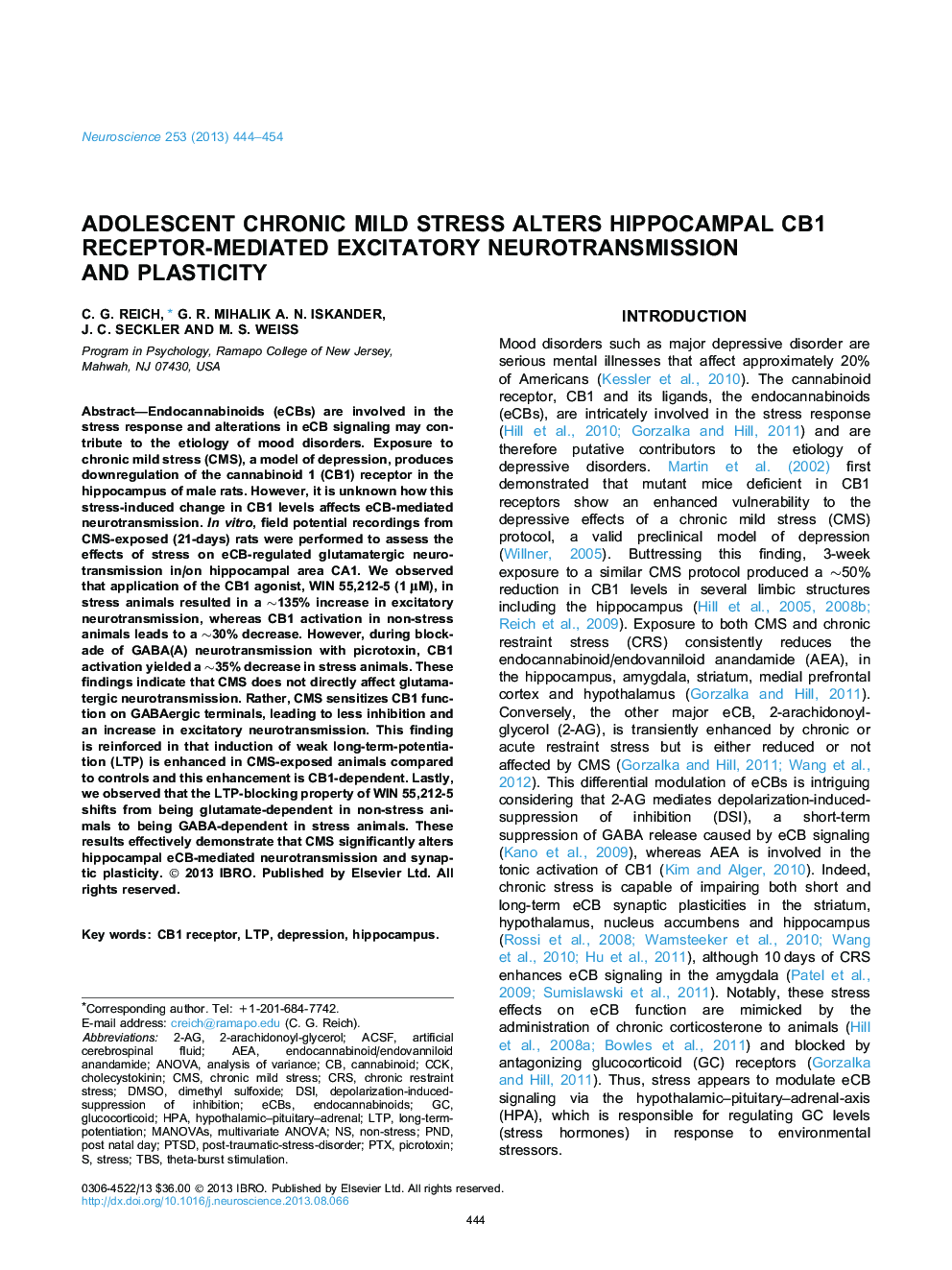| Article ID | Journal | Published Year | Pages | File Type |
|---|---|---|---|---|
| 6274338 | Neuroscience | 2013 | 11 Pages |
Abstract
Endocannabinoids (eCBs) are involved in the stress response and alterations in eCB signaling may contribute to the etiology of mood disorders. Exposure to chronic mild stress (CMS), a model of depression, produces downregulation of the cannabinoid 1 (CB1) receptor in the hippocampus of male rats. However, it is unknown how this stress-induced change in CB1 levels affects eCB-mediated neurotransmission. In vitro, field potential recordings from CMS-exposed (21-days) rats were performed to assess the effects of stress on eCB-regulated glutamatergic neurotransmission in/on hippocampal area CA1. We observed that application of the CB1 agonist, WIN 55,212-5 (1 μM), in stress animals resulted in a â¼135% increase in excitatory neurotransmission, whereas CB1 activation in non-stress animals leads to a â¼30% decrease. However, during blockade of GABA(A) neurotransmission with picrotoxin, CB1 activation yielded a â¼35% decrease in stress animals. These findings indicate that CMS does not directly affect glutamatergic neurotransmission. Rather, CMS sensitizes CB1 function on GABAergic terminals, leading to less inhibition and an increase in excitatory neurotransmission. This finding is reinforced in that induction of weak long-term-potentiation (LTP) is enhanced in CMS-exposed animals compared to controls and this enhancement is CB1-dependent. Lastly, we observed that the LTP-blocking property of WIN 55,212-5 shifts from being glutamate-dependent in non-stress animals to being GABA-dependent in stress animals. These results effectively demonstrate that CMS significantly alters hippocampal eCB-mediated neurotransmission and synaptic plasticity.
Keywords
multivariate ANOVACCKCMSPTXDSIaCSFeCBs2-AG2-arachidonoyl-glycerolCRSTBSPNDAEADMSOPTSDchronic mild stressChronic restraint stressStressDepressionendocannabinoidsTheta-burst stimulationanalysis of varianceANOVALTPDimethyl sulfoxidepost natal dayartificial cerebrospinal fluidHPAhypothalamic–pituitary–adrenalHippocampusPicrotoxinCannabinoidcholecystokininGlucocorticoidCB1 receptor
Related Topics
Life Sciences
Neuroscience
Neuroscience (General)
Authors
C.G. Reich, G.R. Mihalik, A.N. Iskander, J.C. Seckler, M.S. Weiss,
